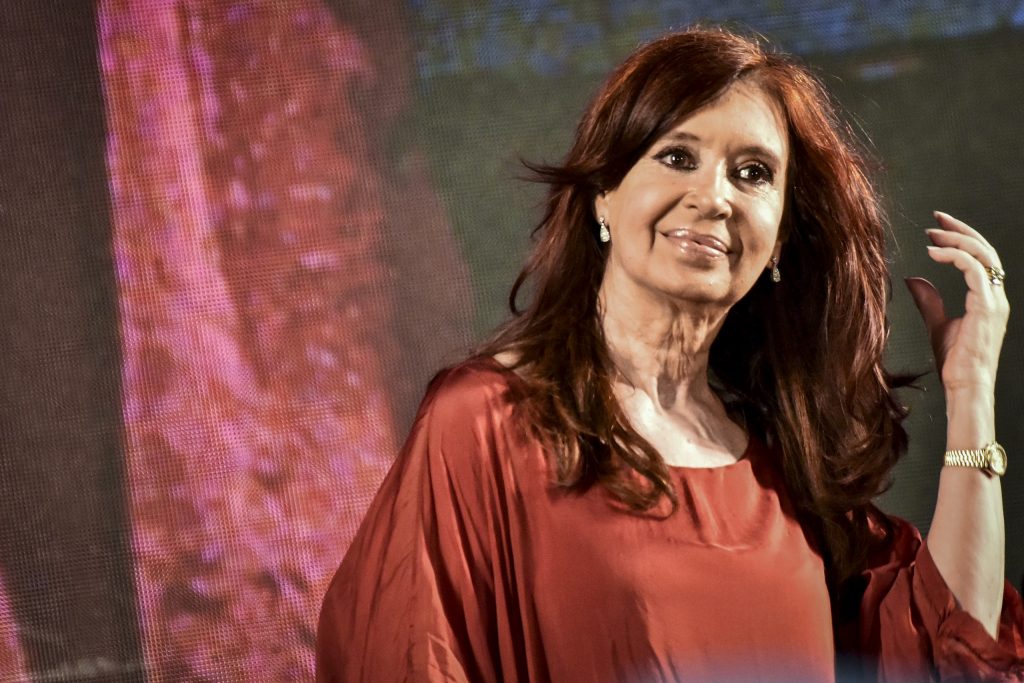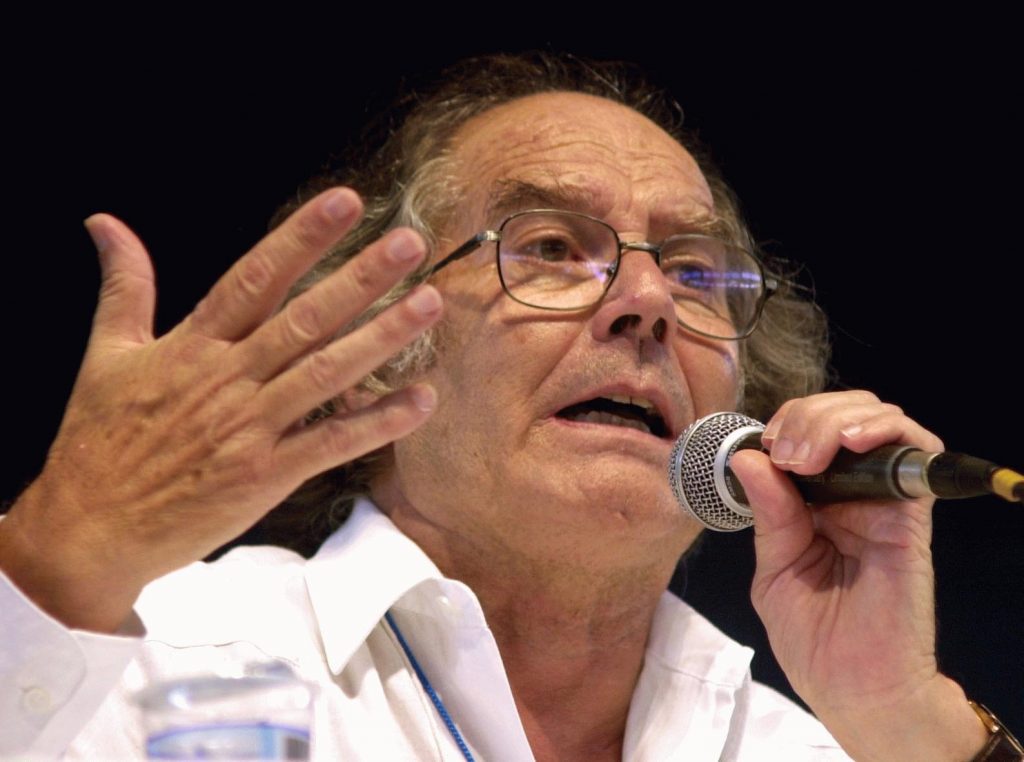RIO DE JANEIRO, BRAZIL – In Argentina, ex-president and newly elected vice-president Cristina Kirchner has appeared before the court, on Monday, December 2nd, to testify in the trial for alleged corruption in public procurement contracts in the province of Santa Cruz.

According to the prosecution, she was the leader of an illegal association. Her late husband, President Nestor Kirchner, is alleged to have placed accomplices in state structures that ensured that funds were made available for public contracts in the couple’s home province. These funds are then said to have gone to business friends. After her election as president, Cristina Kirchner had taken over and maintained this organization.
In May, after almost three years of investigation, the oral and public stages of the proceeding were opened. The prosecutor in charge, Diego Luciani, spent five days reading the charges, broadcast live on television. Kirchner’s attorneys demanded in return that her testimony should now also be broadcast. However, the judges rejected this request. Journalists who tried to broadcast the hearing were expelled from the courtroom. However, a note produced by the attorneys was posted on social media.
Kirchner’s defense was divided into two parts: She first outlined the political context of the persecutions (Lawfare) to which she and members of her government had been subjected in recent years.
She spoke about the “Mesa Judicial” (“Judicial Board”), an unofficial body in which outgoing President Mauricio Macri, other senior members of the government, the head of the secret service and even the head of the Boca Juniors football club – a close confidant of Macri – are said to have decided who should be tried and who should be arrested.
The board had pressured judges and prosecutors and coordinated campaigns with pro-government media. This included the targeted distribution of illegal wiretapping protocols: Kirchner complained that her private phone conversations were broadcast several times in the media without the judiciary doing anything about it.
She also pointed out that Macri had amended a law by decree to place Laura Alonso at the head of the anti-corruption agency, although she did not meet the required standards. Kirchner was also critical of Mariano de Federici’s appointment as chairman of the anti-corruption agency UIF (Financial Intelligence Unit).
De Federici was a manager of HSBC bank, against which an investigation for money laundering was conducted under Kirchner’s government. After the change of government, the case was dropped, although the US judiciary imposed an enormous fine on the bank over the same grounds.
In the second part, she addressed the trial and its apparent shortcomings and irregularities. Starting with the fact that – as with virtually all charges against her – one of two investigation judges was always selected: Claudio Bonadío or, in this case, Julian Ercolini.

The allegations have not been substantiated so far: In 2016, Secretary of State Javier Iguacel commissioned an investigation into the public contracts in Santa Cruz, on the grounds of which he lodged a complaint. However, this investigation produced no evidence of irregularities: The commissioned works had been erected, the prices were in line with the market and there were no unfounded additions.
An expert opinion ordered by the judges was absent at the opening of proceedings. To “save time”, only five out of 51 commissions were to be examined, in any event. The more comprehensive evaluations requested by Kirchner’s attorneys were refused. As a result, an appeal to the Supreme Court is still pending.
According to Kirchner, the alleged criminal organization described by the prosecution could not function at all: The amounts budgeted by the state and passed by Congress were paid to the provinces. The provinces carried out the tenders independently. The government ministers in office in each case would have been the mandatory intermediaries of such a system, but they were neither charged nor even questioned.
The budget allocated to the province of Santa Cruz was appropriate for the province’s size and requirements, and the deputies had voted on it in Congress and passed it.
A fundamental legal principle had also been violated: “Ne bis in idem”, a person can not be prosecuted more than once for the same crime. As early as 2009, there had been an indictment alleging precisely these same charges. At the time, the same investigating judge – Ercolini – declined jurisdiction and referred the case to the provincial judiciary. The latter acquitted the defendants. A second indictment had also been rejected, and now a court was entrusted with the same facts for the third time.
In this context, she also criticized the fact that several parallel trials were taking place covering virtually the same matter. The first case concerned alleged money laundering by the construction company Lázaro Báez, an alleged strawman of the Kirchners. However, the contact could not be proven at that time and the judge in charge explicitly stated that there was no evidence against the politician.
In addition, investigations were ongoing in the “Hotesur” and “Los Sauces” cases. The second of these cases was initiated by Judge Bonadío after the first case had been removed from his hands. Kirchner complained that there were two proceedings on the same facts. In neither of the two proceedings, however, has the prosecution so far been able to produce evidence of illegal payments.
Kirchner concluded her speech with a modified quote from Fidel Castro: “I am sure you have already drafted the verdict. I don’t care about that. History has already acquitted me.” When the prosecutor asked her if she would answer questions, she challenged him by saying, “You will have to answer questions”.
The Professor of Criminal Law and newly elected President Alberto Fernandez described her lecture as “one of the best defensive speeches he has ever heard”. Argentine Nobel Peace Prize winner Adolfo Pérez Esquivel compared the proceedings with those against former President Luiz Inácio Lula da Silva in Brazil or Rafael Correa in Ecuador.

